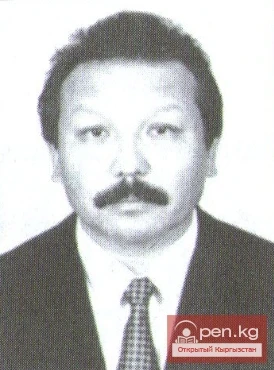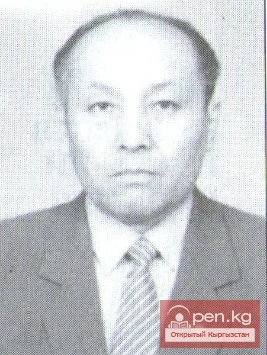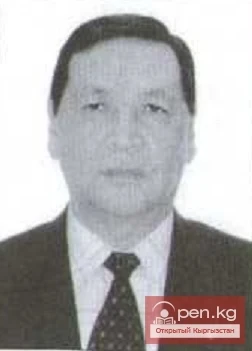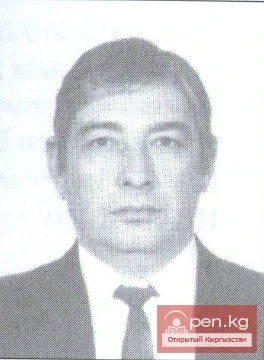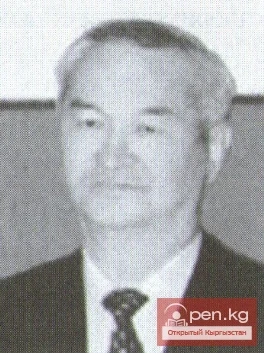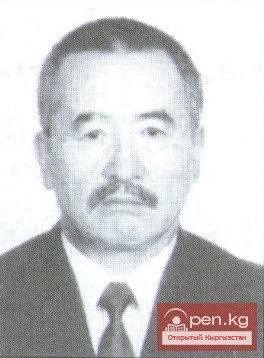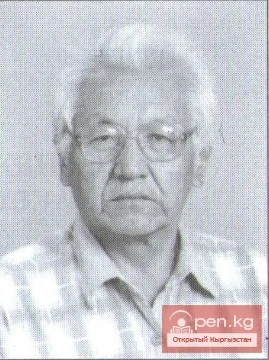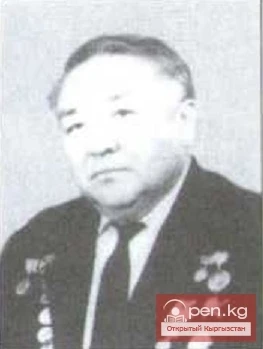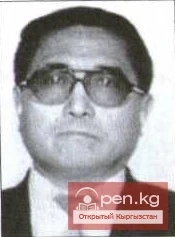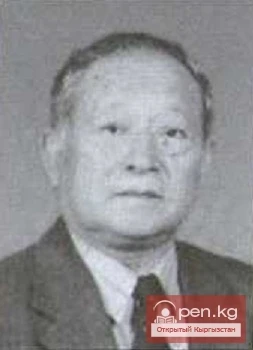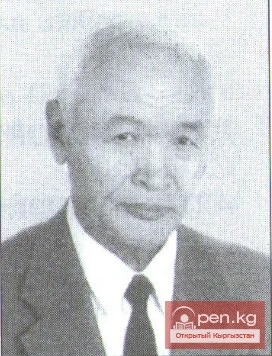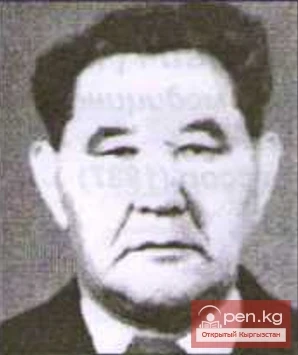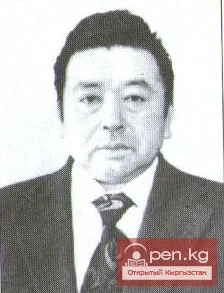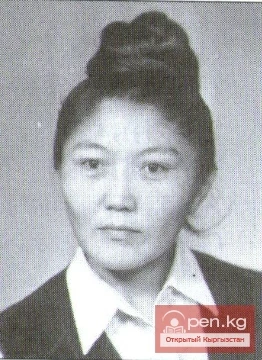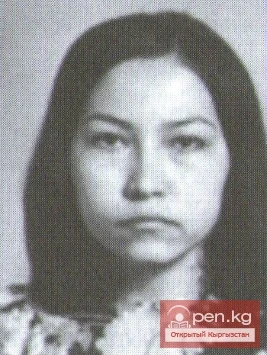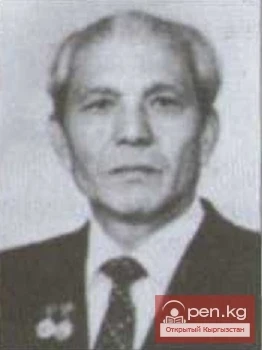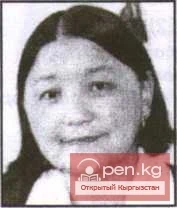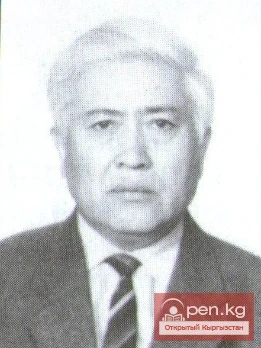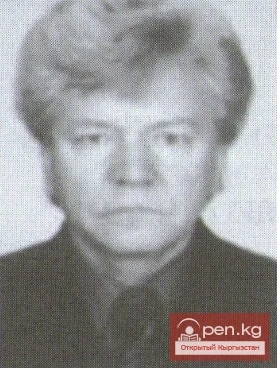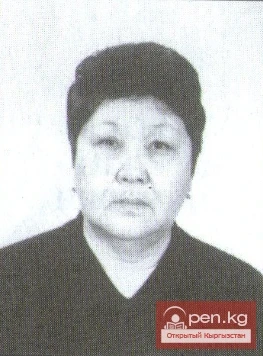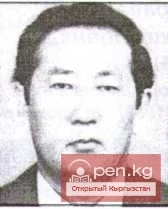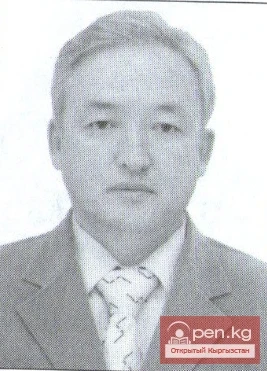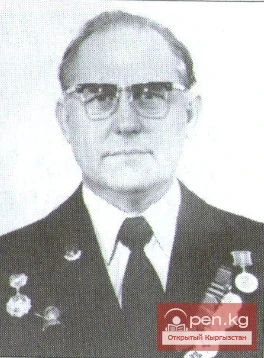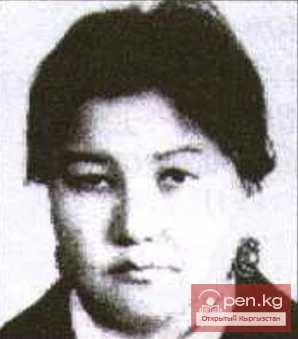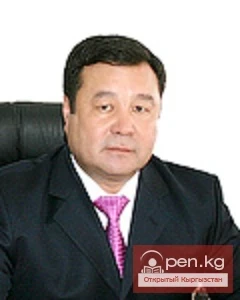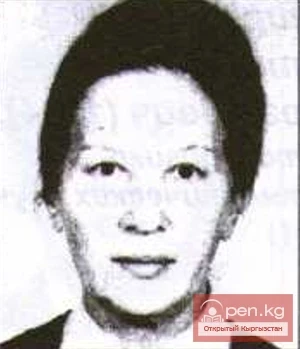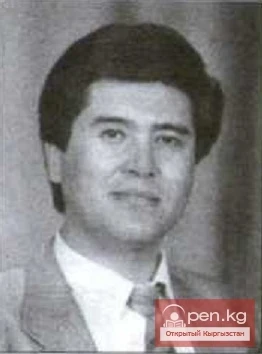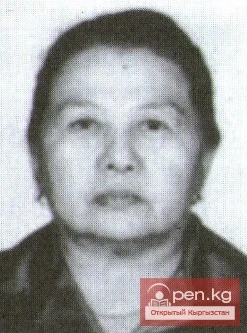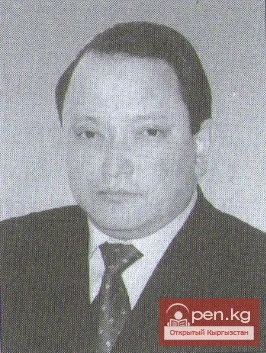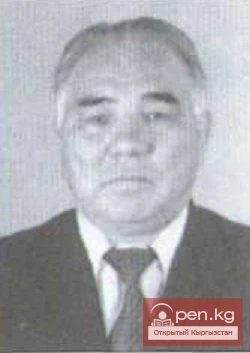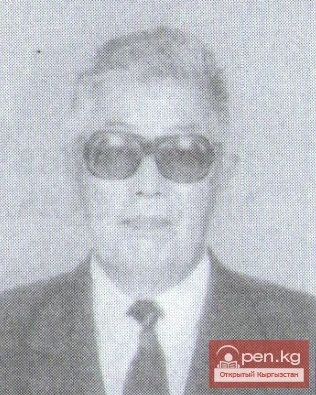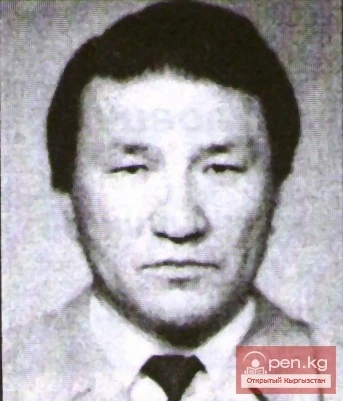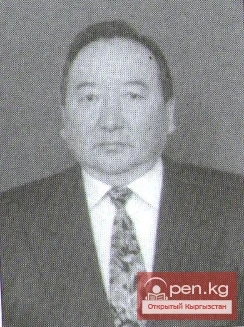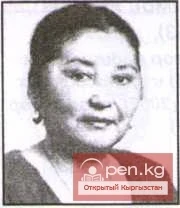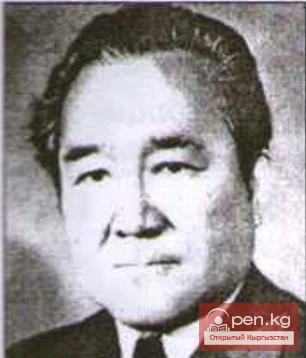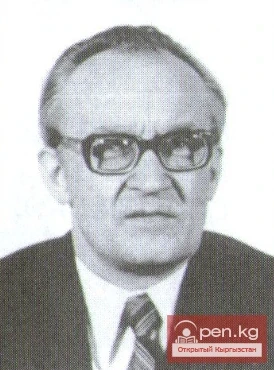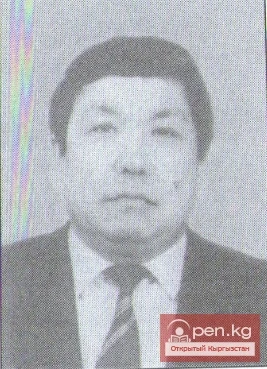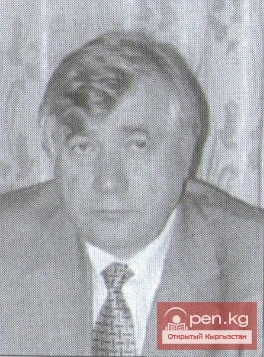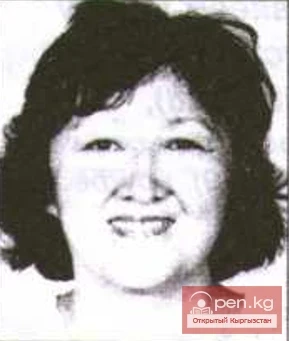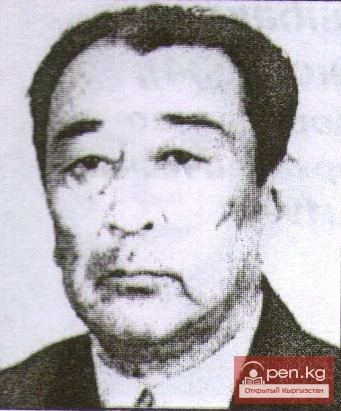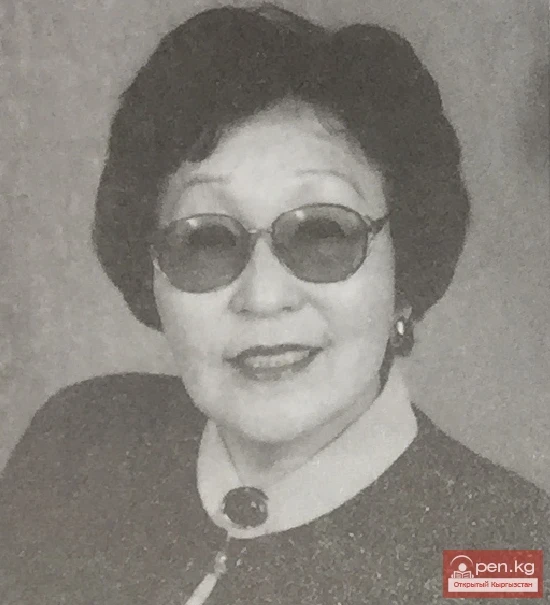
E. I. Ismailova is a prominent philosopher, public figure, Doctor of Philosophy, professor, passionate speaker with knowledge of foreign languages, head of the Department at the Bishkek Humanities University named after K. Karasaev, Vice-President of the World Academy of Professors, and a member of the Special Council for the defense of doctoral and candidate dissertations in philosophy and cultural studies at the National Academy of Sciences of the Kyrgyz Republic.
Professor E. Ismailova is proficient in Russian, English, Kyrgyz, Mongolian, Kalmyk, and Buryat languages.
She is distinguished by her broad erudition, demanding nature, responsibility, responsiveness, and kindness.
She is the author of four monographs and over 200 scientific articles, and editor of many scientific publications.
She has been awarded a Certificate of Honor from the President of the Kyrgyz Republic, the badge "Excellence in Education of the Kyrgyz Republic," a Certificate of Honor from the Government of the Mongolian People's Republic, and a Certificate from the Ministry of Higher and Secondary Special Education of the USSR. She has been conferred the title of "Honored Worker of Education of the Kyrgyz Republic."
Emilia Ismailova was born into a large family of teachers in the village of Nukuty in the Alar district of the Irkutsk region. The family raised 10 children, five of whom were orphaned relatives. Her father, Mathkanov Irinchey, was a distinguished teacher with extensive experience, a participant in the Great Patriotic War, and a respected person in the village. Her mother, Natalia Namsaraevna, was a teacher with an exceptionally accommodating character. She endured all the hardships of wartime, as she was responsible not only for 10 children but also for her elderly father. The modest teacher's salary was insufficient, and Natalia Namsaraevna also worked part-time in a kindergarten.
From the 4th grade, Emilia worked as a bell ringer at school—ringing the bells for lessons and breaks. Her father, leaving for the front, left her his pocket watch, which she used to determine when to ring the bells. In addition, she and her brother took on the duties of the school janitor, heating classrooms in 40-degree Siberian frost.
"Learn, learn, and learn again" - this motto was a cult in the Mathkanov family. This family atmosphere, where the spirit of knowledge and the priority of education were unquestionable, greatly influenced the children. Emilia's siblings graduated from high school with gold or silver medals. Two of them, Emilia and Eduard, became Doctors of Science and professors—one in philosophy and the other in medicine.
The Beginning of Young Emilia's Career
After graduating from high school, she enrolled in the philosophy department of Moscow State University named after M. V. Lomonosov. After finishing university, Emilia, as a young and promising graduate, was retained in Moscow, but due to family circumstances, she had to return to her homeland in Buryatia.
There, she was invited to work in the regional Komsomol committee as the secretary for ideology. It was here that Emilia Irincheevna's inclination towards research work manifested. The Komsomol bureau recommended her for graduate school. In 1962, she became a graduate student at the philosophy department of Moscow State University. Here, she underwent a rich scientific education filled with ideas and traditions. This contributed to her development as a philosopher. She fondly remembers her teachers—D. I. Chesnokov, F. N. Momdzhyan, M. D. Ovsyannikov, V. I. Razin, M. V. Demin, M. S. Junusov, S. P. Kaltakhchyan, and many other academicians and professors. Communication with them provided invaluable sources for reflection and understanding of contemporary realities.
After successfully defending her candidate dissertation, she was retained in Moscow. After delivering a trial lecture and passing a rigorous competitive selection, she earned the right to work at the Moscow Medical Stomatological Institute named after N. Semashko. She worked there for 20 years, rising from lecturer to associate professor, and then to Doctor of Science and professor.
As a young specialist, the Sverdlovsk District Party Committee sent E. Ismailova as a propagandist to the Ministry of Health of the Russian Federation. It was a large and highly professional team. It is not surprising that initially there were certain rough edges in her relationships with the audience. After all, she was addressing renowned medical scholars, seasoned by life experience, who had gray hair. Firstly, Emilia was very young, which did not inspire much trust in such an authoritative group. Secondly, her Eastern appearance did not add "weight" to her authority.
She approached the listeners' cautious and skeptical attitude calmly and with understanding. She tried to gain the audience's trust through thorough preparation for classes and competent, clear, and measured responses to quite tricky questions. Ultimately, the hard work and efforts of the young propagandist were duly appreciated. She worked with this team for 12 years until her assignment to Mongolia.
Assignment of E. Ismailova to Work at the Kyrgyz State Medical Institute
Emilia Irincheevna was sent to the MPR as an assistant to the Minister of Education of Mongolia, considering her specialization in Chinese philosophy to teach a course on "History of Chinese Philosophy" at the Mongolian State University. She prepared a graduate with honors, a specialist in Chinese philosophy named Ganttomor, who now teaches Chinese philosophy at one of the universities in Washington. For her achievements and effective results in developing scientific and cultural ties between scholars of the USSR and MPR, E. Ismailova was awarded a Certificate from the MPR and the Ministry of Higher and Secondary Special Education of the USSR. After completing her overseas assignment, she returned to the Moscow Medical Stomatological Institute. She prepared and defended her doctoral dissertation on the problems of cultural interaction among Eastern peoples. After that, the Ministry of Education of the USSR assigned her to work at the Kyrgyz State Medical Institute. There, she was elected head of the Department of Philosophy and Cultural Studies on an alternative basis. During the difficult years of perestroika and the transitional period, Emilia Irincheevna strengthened the department's status within the institute, leading a team of philosopher-scientists and medical professionals who developed a comprehensive topic: "The Dialectics of the Natural, Artificial, and Social." The book "Ecology and Health" (1992), published as a result of this research, still holds practical preventive, medical-biological, and social significance today.
Under the guidance of E. Ismailova, an international conference dedicated to the Indian philosopher Mahatma Gandhi was held at the Bishkek Humanities University. She then headed a section at a conference dedicated to the 200th anniversary of A. S. Pushkin. Many academicians of the Russian Academy of Sciences—literary scholars and linguists—participated in the conference. After all, A. S. Pushkin is not only a genius of Russian literature but also a self-taught philosopher. The children's fairy tale about the fisherman and the fish serves as a warning about the harmfulness of such a human trait as boundless and insatiable desires and greed. Today, it is just as relevant as it was two years ago.
During her tenure as head of the department at the KSMI and BGU, she proved to be a good organizer and a highly professional educator. During her time at BGU, the level of scientific work in the department significantly increased, with monographs, textbooks, and methodological manuals for students and graduate students being published. She published a textbook "Philosophy" (2002) for students and graduate students, a textbook on the history of Chinese philosophy, and developed programs on the history of philosophy and the history of religion in China. Articles on Chinese philosophy have been published both in Kyrgyzstan and abroad. Professor E. Ismailova has published methodological manuals reflecting the latest innovative methods of conducting classes and developed tests to activate the learning process.
She actively participated in the preparation and opening of the first Kyrgyz-Chinese faculty in Kyrgyzstan at BGU, which remains the only educational structure in the country that trains philosophers specializing in Chinese studies. With her participation, a State standard for the history of Chinese philosophy and cultural studies was developed, along with a program for training graduate students and candidates for academic degrees. In addition to lectures for students, Professor E. I. Ismailova conducts a course of lectures for preparing graduate students and candidates for the Candidate Minimum Program in the history and philosophy of science, and lectures for foreign students and master's students.
In 1994, Professor E. Ismailova was one of the organizers of the scientific-practical conference "Family and Women in a Changing World." Following the Year of Women (1996), the Women's Committee of Kyrgyzstan, with the active participation of Ismailova E. I., prepared and published a collection of scientific works "Year of Women: Results and Prospects."
Scientific Works of Emilia Ismailova
E. Ismailova is the author of four monographs published by various publishers: "Everyday Life of the Soviet People" (Moscow, "Nauka" publishing house), "Traditions of the Peoples of the East" (Ulan-Ude), "Dialectical-Materialist Study of the Social Nature of Activity" (Prague), "The Problem of Spirituality: Reflections in a Transitional Period" (Bishkek, 2002).
She has published over 200 scientific articles in publishing houses in Moscow, Kyiv, Volgograd, Prague, Ulan Bator, Ulan-Ude, and Bishkek. E. I. Ismailova has been the editor of many publications released in Moscow, Volgograd, Ulan Bator, Bishkek, and Poznań (Poland).
In addition to her fruitful scientific and publishing activities, Professor E. Ismailova actively participates in the scientific life of the republic. She is a member of the Special Council for the defense of doctoral and candidate dissertations in philosophy and cultural studies at the National Academy of Sciences of the Kyrgyz Republic. She has prepared 2 Doctors of Science. Today, under her scientific supervision, 6 graduate students are preparing their candidate dissertations.
Professor E. I. Ismailova gives lectures not only in the republic but also in Mongolia, Iran, Pakistan, Russia, Azerbaijan, Ukraine, China, South Korea, Kazakhstan, and Poland.
She has lectured at the medical faculties of Peking and Shanghai universities. Her report "The Role of Culture in Bringing Peoples Together in the Eurasian Space" won a competition, and she was invited to an international symposium in Poland. As a delegate from the Women's Committee of Kyrgyzstan, she participated in the International Seminar "Women Leaders of Non-Governmental Organizations" in Israel.
Emilia Irincheevna often speaks in the media on issues of higher education and the women's movement, dedicating much time to developing social, tender, legal, medical-biological aspects related to women's issues, as well as family planning. She has traveled throughout the republic giving lectures, discussions, and charitable actions. Special attention is given to issues of women's leadership, gender equality, family planning, and social protection for vulnerable populations—pensioners, single individuals, and the disabled. She participates in important political campaigns, the preparation of referendums, and other significant actions. She actively collaborates with embassies and frequently speaks on current political and social issues to their staff. She was elected as an expert on population issues for UNDP on a competitive basis.
Professor E. Ismailova participated in the preparation and justification of the law on transferring land into private ownership. In the newspaper "Kyrgyz Tuusu," she published a series of articles on this issue. She participated in the examination of legislation for discriminatory elements against women based on tender criteria, in the preparation of documents and justification for transitioning the Parliament to a unicameral system, and in discussions on the Law "On Education."
In 2012, she participated in a competition for a Japanese grant "Unified Asia" and became one of its recipients.
She developed and delivered a series of lectures on pressing and relevant issues of the political and geopolitical situation. They generated enormous interest and lively discussions. Some of the topics included: "Axial Time: Time of Fossils or Impulses for Development," "Axial Time - Key to Understanding Modernity," "Culture of Thinking and Work Ethics of Peoples Adhering to Shintoism, Buddhism, and Confucianism." As a result of her work on the Japanese grant, Professor E. Ismailova prepared an article "Philosophical Views at the Crossroads of Civilizations," which was published in Japan in Japanese.
Her husband, Asein Izmailovich, often told her: "You are as straightforward as railway tracks." Perhaps this straightforwardness created problems for Emilia Irincheevna. There were times when she genuinely suffered because of this, but she never changed her character; she never learned to be cunning, sly, or to speak untruths. Professor Ismailova is characterized by a clear, principled position and deeply thought-out and justified civic responsibility.
Emilia Irincheevna is a happy mother and grandmother. She has 5 grandchildren who are growing up and bringing joy to their grandmother. In her daily life, she finds time to enjoy classical music and listen to her beloved singers—Bulata Minzhilkieva, Kerima Turapova, and Bakyt Ybykeev.
In the life of every person, the past and present intertwine. They essentially define one's inner world. A person is not a mankurts, not Thomas, who does not remember kinship. National traditions are a spiritual heritage not only of the people but also of each individual. And for a philosopher, it is also a treasure trove from which thoughts and wisdom of the ages are constantly drawn.
Emilia Irincheevna's favorite saying is: "Everything passes, and this too shall pass...". Perhaps this is the very life wisdom that helps her remain optimistic and believe in the future of Kyrgyzstan.
Women of Kyrgyzstan
